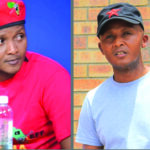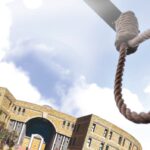Poloko Mokhele
The annual commemoration of King Moshoeshoe’s Day should not dwell principally on the dress code but on the core of his values and what he stood for.
There should also be a series of academic seminars such as Moshoeshoe lectures where people should be engaged in the principles set by King Moshoeshoe I.
With some Basotho not having enough understanding of Moshoeshoe I’s Day which is commemorated on March 11, this week ahead of the annual commemoration on Saturday, Newsday spoke to a young historian, Mahlomola Letsie.
“We are commemorating King Moshoeshoe I’s death, which occurred on Friday, March 11, 1870, around 10 am,†he said.
“He was buried the next day on Saturday, March 12, 1870, in what was surprisingly a Christian-coordinated funeral conducted by the Paris Evangelical Missionary Society (PEMS).
“I am saying surprisingly because King Moshoeshoe I until his death never converted to Christianity. His exact birth date is unknown; it is highly assumed he was born in 1786 using past events of that era’s timetable.â€
Asked when the country began commemorating the day, Letsie stated that for many years, probably 76 years long, the country was inadvertently celebrating the day of his funeral, which is March 12.
“I am saying inadvertently because the date of 12 March was suggested solely on the premise that, it was on Thursday 12 March 1868 when the declaration that Lesotho was under the British administration was declared and the Boers abided,†he said.
He added that around 1903, the first parliament of Lesotho called Basutoland National Council (BNC) was established.
“On 22 March 1913, Majakathata Phamotse, a member of the Basutoland Progressive Association (BPA) made a suggestion before the BNC that there should be a sign of respect made to King Moshoeshoe I.
“Phamotse augmented his point by saying in South Africa the Boers have Dingaan’s Dag (Dingane’s Day) in which the Boers were celebrating their victory over the Zulus on 16 December 1838 at the Battle of Blood River. The day was changed post the 1994 democratic elections and renamed Day of Reconciliation,†Letsie highlighted.
According to Letsie, Phamotse suggested King Moshoeshoe’s Day be held on March 12, every year to commemorate the March 12, 1868, incident but his suggestion was ignored.
In 1917, Josiel Lefela, who was only part of the BNC parliament on behalf of Principal Chief Lesaoana Peete of Mapoteng, made a similar suggestion that March 12 should be a public holiday but like Phamotse, his suggestion was also ignored.
Two years later in 1919, Lefela established Lekhotla La Bafo, or a League of Commoners, crying foul that an ordinary man or a commoner was not represented in the BNC.
In the same year, 1919, Principal Chief Sekonyela Bereng of Rothe suggested that King Moshoeshoe’s Day be established and be celebrated on March 12. His suggestion was welcomed leading to the first commemoration held on March 12, 1920, in Matsieng.
Questioned on what was said to be the basis of the celebration then, Letsie articulated that “the commemoration was principally on very immaterial celebrations; school children embarked on sports competitions which had little to do with King Moshoeshoe I and what he stood for. Children grew up thinking King Moshoeshoe’s Day was a sports day and that was highly misleading.â€
The commemoration was held annually until 1996 when the government of Prime Minister Ntsu Mokhehle pointed out that “it was wrong to celebrate the incident of March 12, 1868, as it was the day the country was subjected to the yoke of colonialism. The government in turn suggested March 11 day instead as it was the day that King Moshoeshoe I passed away.â€
Letsie who for the whole session of the interview referred to Moshoeshoe I as King, stated that he was of the opinion that the government of Lesotho was not doing enough to ensure that King Moshoeshoe I’s history is preserved for future generations.
“My advice is that there should be a series of academic seminars such as King Moshoeshoe I lectures held in primary, secondary, and high school levels up to tertiary and Pitsos in villages where people should be engaged on principles set by King Moshoeshoe I.â€
Letsie has also questioned the practice of marking Moshoeshoe’s Day by laying of wreaths on his grave on top of Thaba Bosiu by three Principal Chiefs led by His Majesty King Letsie III.
Only the Principal Chiefs of Makhoakhoa, Bataung, and Batlokoa participate in the commemoration, yet King Moshoeshoe I forged alliances with more chiefs, Letsie argued.
“The ‘alliance of chiefs’ that is celebrated on top of Thaba Bosiu on March 11 should be abolished. It did not occur at Thaba Bosiu but in Botha Bothe. Other chiefs such as Moorosi of Baphuthi are excluded and chief of Bafokeng as if they never forged an alliance with King Moshoeshoe I,†Letsie strongly suggested.
He concluded by accusing the government of ensuring that King Moshoeshoe I’s name and legacy are nonexistent.
He said this was confirmed by the manner in which roads or buildings are named after him.
“When you go to countries like Botswana, you cannot find a road called Seretse Khama road but Sir Seretsa Khama road. But here, it is just Moshoeshoe I International Airport or Moshoeshoe road, even on official documents there is no respect of whatsoever.â€
Summary
- “I am saying inadvertently because the date of 12 March was suggested solely on the premise that, it was on Thursday 12 March 1868 when the declaration that Lesotho was under the British administration was declared and the Boers abided,†he said.
- The commemoration was held annually until 1996 when the government of Prime Minister Ntsu Mokhehle pointed out that “it was wrong to celebrate the incident of March 12, 1868, as it was the day the country was subjected to the yoke of colonialism.
- Letsie who for the whole session of the interview referred to Moshoeshoe I as King, stated that he was of the opinion that the government of Lesotho was not doing enough to ensure that King Moshoeshoe I’s history is preserved for future generations.

Your Trusted Source for News and Insights in Lesotho!
At Newsday Media, we are passionate about delivering accurate, timely, and engaging news and multimedia content to our diverse audience. Founded with the vision of revolutionizing the media landscape in Lesotho, we have grown into a leading hybrid media company that blends traditional journalism with innovative digital platforms.










